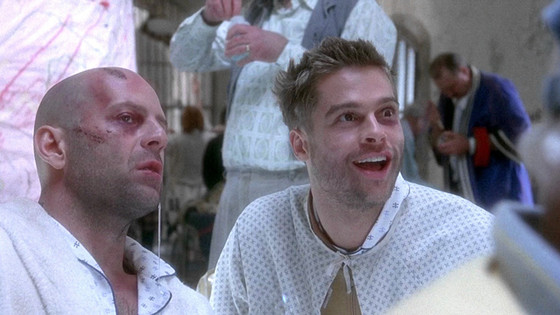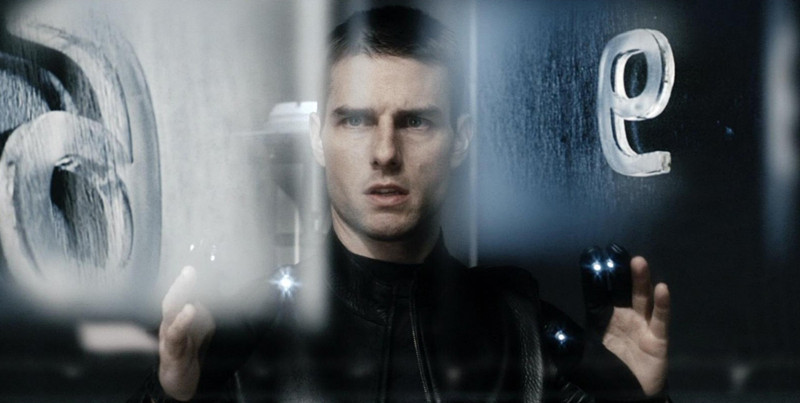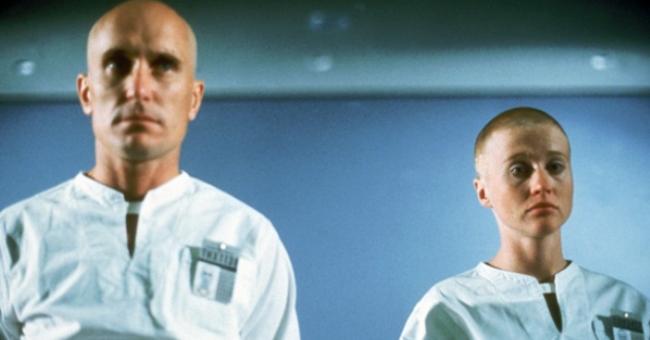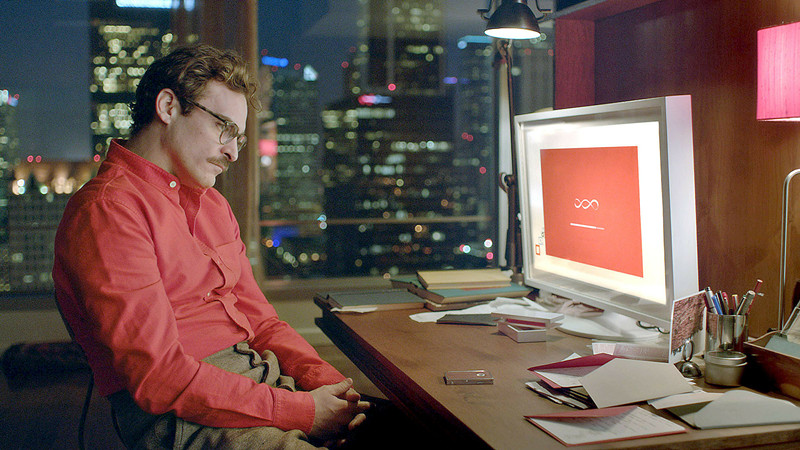5. 12 Monkeys

12 Monkeys is a film that explores the intersection between memory, destiny, and futurism, and questions whether technology can impact one’s ability to reshape their destiny. Bruce Willis’s character James Cole is haunted by a vision of his own death, one that he has misinterpreted as something from his past. The story of Cole’s time travel to a pre-apocalyptic time risks being overly confusing, but the brilliant direction from Terry Gilliam manages to hook the viewer with its emotional quality.
The distinction between the past and present is instrumental to the unconventional storytelling of Westworld. In the series, events are told out of order, and the viewer is left to contemplate whether what they’re watching is the past, the present, or an amalgamation of the two. The characters of Westworld are often placed in the same situation that James Cole is, as their core foundational memories end up having a different context when new information is revealed.
4. Minority Report

The work of Jonathan Nolan commonly reverts back to the idea of loops; Cobb experiences loops of similar events in Inception, magicians Angier and Borden lead a cycle of showmanship in The Prestige, Cooper is trapped in a journey of leaving home in Interstellar, and even Batman and the Joker are trapped in a philosophical loop in The Dark Knight. In Westworld, Nolan looks at loops as a product of determinism, and questions the nature of free will. No film examines this debate better than Steven Spielberg’s modern classic Minority Report.
In a future where the government utilizes psychics to find criminals before crimes occur, PreCrime Chief John Anderton (Tom Cruise) finds himself charged with an impending murder. As Anderton goes on the run from authorities, he questions whether he himself is capable of the crime he’s accused of ultimately committing, and looks for an alternate path in which he remains innocent. Anderton’s quest to break out of his loop is told with jaw dropping visuals and an imaginative vision of the future of law and justice; it is not something that fans of Westworld should miss.
3. THX-1138

It goes without saying that George Lucas is one of the most influential figures in science fiction history, and his work has often been cited as an early influence on the Nolan brothers. Even if Lucas is best known for Star Wars, his directorial debut THX-1138 stands out as a breakthrough achievement in exploring psychological testing and the suppression of choice. In THX-1138, citizens in a dystopian future are forced to erase their individuality, similar to how androids in Westworld are prevented from making their own choices.
THX-1138 is a purposefully cold film, but the rare moments of humanity emerge as the title character (Robert Duvall) ventures on his journey of self-exploration and shows why his fight is justified. Westworld utilizes a similar way of gaining the audiences’ sympathy; the world is cold and cruel for the hosts, but the rare moments of hope give them a reason to break free from the barriers that hold them back.
2. Her

Films about artificial intelligence are often cold and focus purely on the darker side of technological advances, but Her shows a different side by focusing on a futuristic love story. The film is much more complicated than just being about a man who falls in love with his phone; it’s the story about a world gripped by loneliness in which people will do anything to find connection and meaning. Theodore Twombly (Joaquin Phoenix) is a man wrestling with depression and loneliness, and his only real relationship is with Samantha (Scarlett Johansson), an AI whom he falls in love with.
Like Westworld, Her is about the lengths people will go to drastically alter their lives; in Westworld this is seen through the guests and their pursuit of dark and violent fantasies, whereas in Her, it’s through the semblance of a real relationship that Theodore and Samantha search for. While their relationship ultimately does not last, both characters are able to find solace in their momentary pleasures.
1. Blade Runner

One of the best films of all-time, Blade Runner changed the game in terms of its challenging moral philosophies and unique stylized vision of the not so distant future. Similar to how Westworld combined western iconography with stunning sci-fi visuals, Blade Runner incorporated all the elements of a great noir tale into a haunting mystery about a cop that learns about the depths of human emotion from a machine. Both Westworld and Blade Runner transcend their genre trappings to explore the richness of human life; among other things, Rutger Hauer’s famous “tears in rain” speech reflects how the most beautiful things never last.
But the connection between these two works goes beyond their subversion of genre, as both explore artificial intelligence and the search for a creator. Roy Batty (Hauer) becomes aware of his own mortality and seeks to extend his life, similar to how characters like Dolores on Westworld undo their own programming and rebel against their creators. Westworld succeeds largely because the audience is emotionally involved in the characters, and though their circumstances may be imaginative, their journey of self-discovery feels authentic; this is in many ways a lesson learned from Blade Runner.